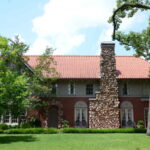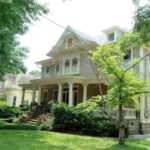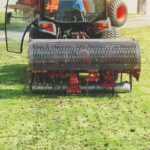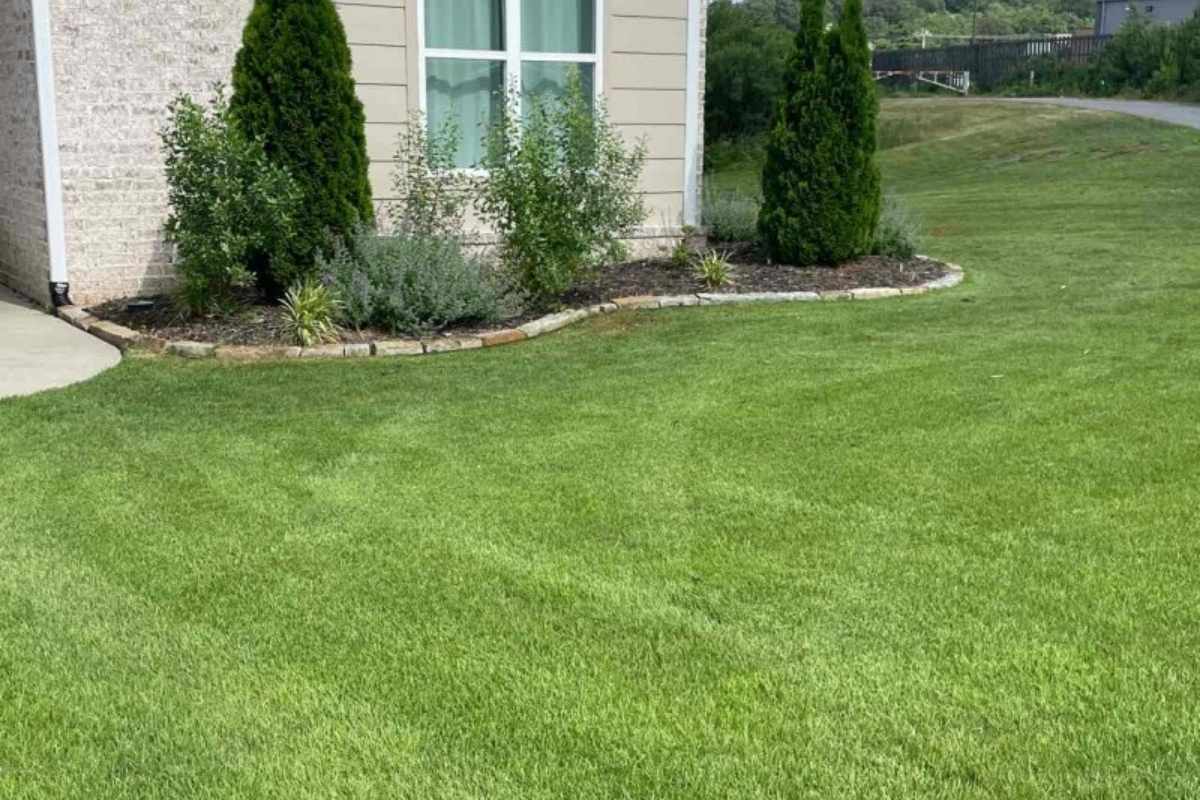
What are the best grass types for Little Rock? Well, we live in the transition zone, so we have warm-season grass options and cool-season grass options.
- Warm-season grasses that thrive in our yards include Bermudagrass, Zoysia, centipedegrass, and St. Augustine.
- Cool-season grasses that do well here include Kentucky bluegrass and tall fescue.
Here are explanations about each kind of grass and why each is commonly grown on lawns in Little Rock:
Bermudagrass
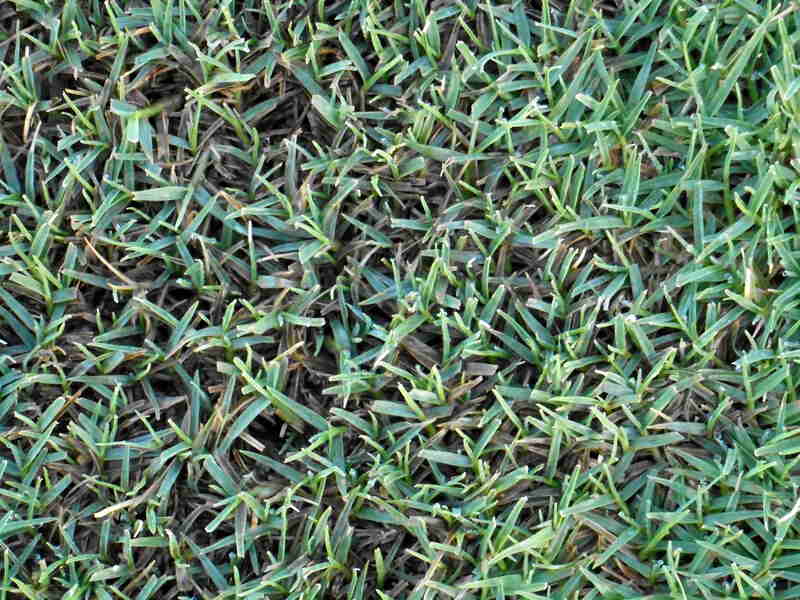
Bermudagrass is a warm-season grass with a deep and extensive root system. It adapts exceptionally well to a hot climate such as here in Arkansas. This grass also has a great recovery ability and doesn’t need much maintenance.
A lawn that is planted with Bermudagrass can be covered entirely within one year. If the grass is applied in plugs or grass seed, it can be showing green within 60-90 days.
Note: When the temperature drops to a frost temperature, Bermudagrass will go dormant. It will turn brown and then, in the spring, resume its growth.
Grass Seed Options:
– Pennington Bermudagrass Bare Spot (5 lb. bag)
– Pennington Smart Seed Bermudagrass Mix (8.75-lb. bag)
– Scotts Turf Builder Bermudagrass (10-lb. bag)
– Hancock Seed Co. Bermudagrass (50-lb. bag)
Zoysia
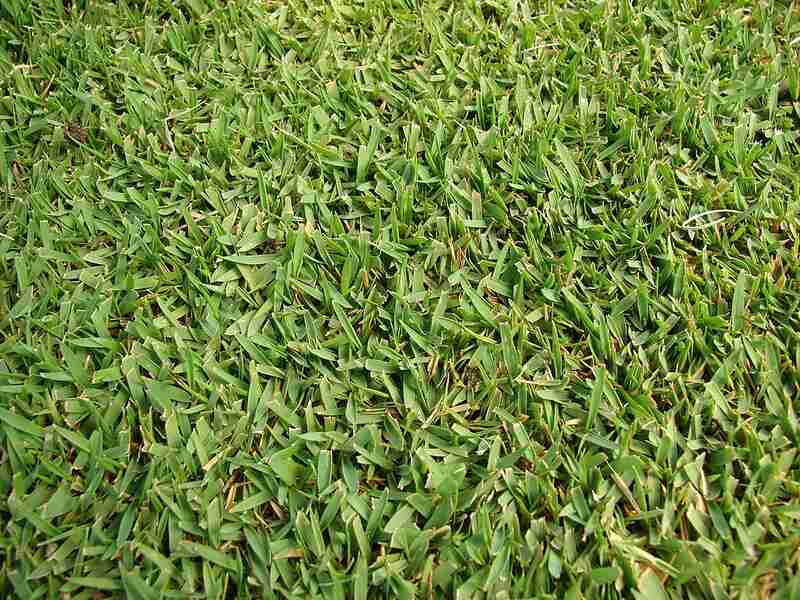
Zoysiagrass does wonderfully in hot and humid Little Rock. It has a fine to medium leaf texture of dark green and a thick, cushiony feel. Zoysia is also an eco-friendly grass and requires less water, mowing, and chemicals to survive. It’s also resistant to pests and disease, so there isn’t a need to use chemicals.
Since this grass grows by spreading stolons or “runners” it grows sideways in different directions instead of growing up. This helps Zoysia to crowd out weeds.
Because of this lateral growth, Zoysia does not require as much mowing as other grasses. In fact, it needs about two-thirds less mowing.
Note: Another use for this grass is for on slopes and other areas of high erosion because of the way it grows.
Grass Plug and Seed Options:
– Zoysia Plugs (50 Large Grass Plugs)
– Zoysia Plugs (50 Full & Lush Grass Plugs)
– Zoysia Plugs (100 Plugs)
– Zoysia Emerald Grass Seeds (1/8 lb. of seeds)
– Zenith Zenith Grass Seeds (1/8 lb. of seeds)
Centipedegrass
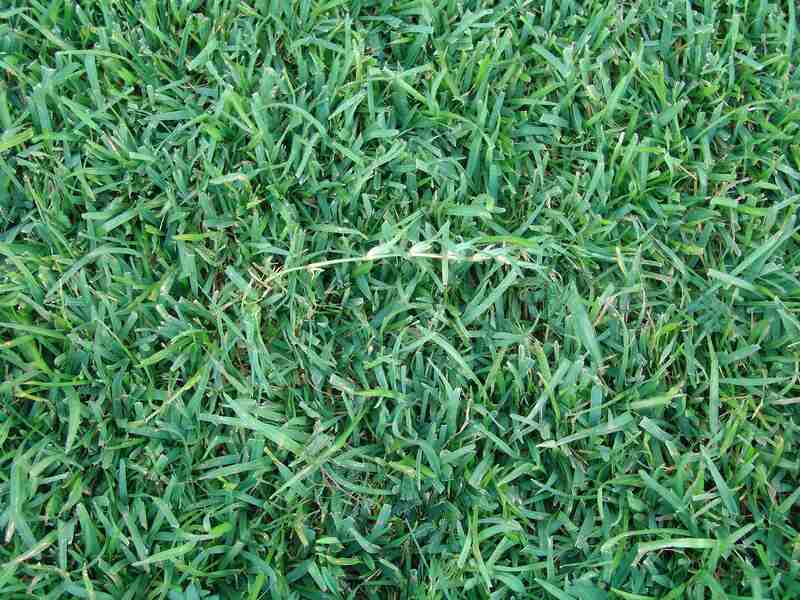
Centipedegrass came from Southeast Asia. It is an all-purpose, low-maintenance, slow-growing grass which has fair to good shade tolerance. It’s also drought tolerant and adapts well to sandy, acidic soils.
Centipedegrass, like Zoysia, spreads by stolons, has a coarse texture and short upright stems which grow to a height of 3 to 5 inches. It requires less mowing and will survive a mild cold temperature.
Note: With light freezes, it will turn brown, and hard freezes will send centipedegrass into dormancy, but it will refresh its green color when the temperature rises.
Grass Seed Options:
– Gulf Kist Coated Centipedegrass Seeds (1 lb.)
– Scotts EZ Seed Patch and Repair Centipedegrass (3.75 lbs.)
– TifBlair Centipedegrass (5-lb. bag)
– Pennington Centipedegrass and Mulch (5-lb. bag)
St. Augustinegrass
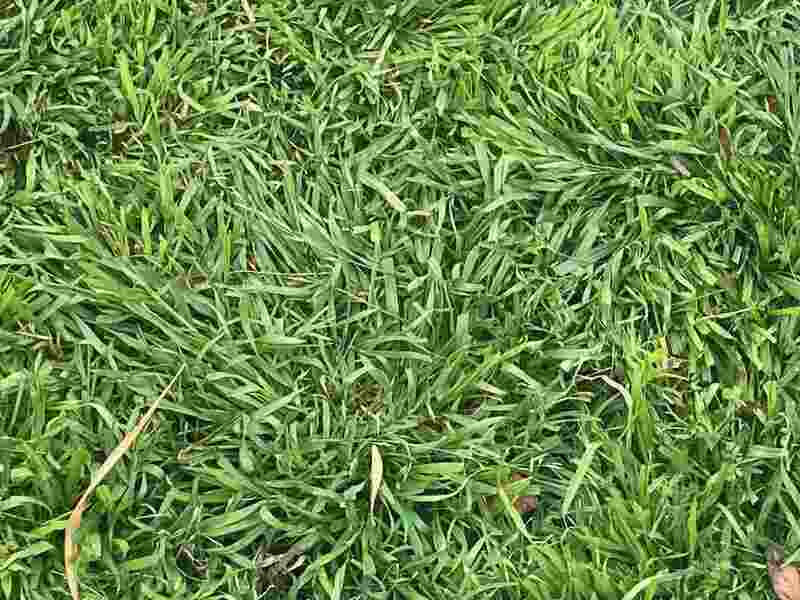
St. Augustinegrass adapts well to the humid and warm climate of Arkansas. It’s dark green, tolerates shade, cold and disease.
Note: St. Augustine won’t remain green doing drought conditions unless you water it. St. Augustine also is a favorite of cinch bugs and has poor wear tolerance.
Grass Plug Options:
– Seed Ranch St Augustine Seville Grass Plugs (2 Trays)
– Seed Ranch St Augustine Floratam Grass Plugs (2 Trays)
Kentucky Bluegrass
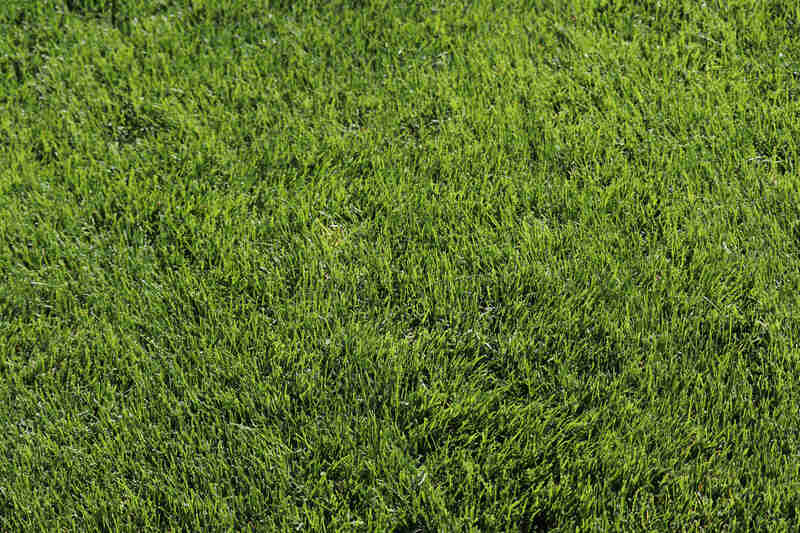
Kentucky Bluegrass is a cool-season grass and can be grown from seed or sod. It’s often used in a traffic area which has low to medium traffic, and it’s usually mixed with other grass seeds.
When combined with other grasses Kentucky bluegrass produces a multi-purpose lawn of better quality. This is the lawn grass that most people want in their yard because it’s finely textured and lush.
Grass Seed Options:
– Jonathan Green (11970) Blue Panther Kentucky Bluegrass Grass Seed (3 lbs.)
– SeedRanch Midnight Kentucky Bluegrass Seed (5 lbs.)
– Jacklin Seed – Biltmore Blue Blend – 100% Kentucky Bluegrass (5 lbs.)
Tall Fescue
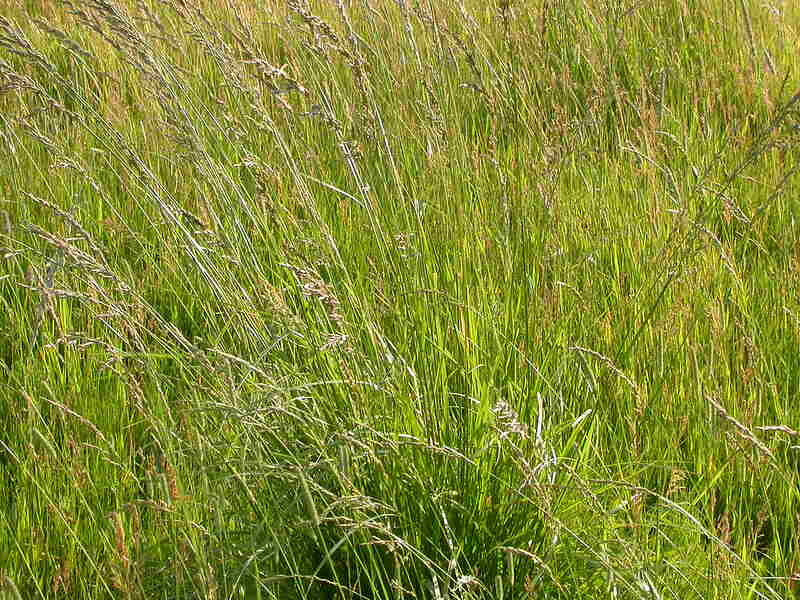
Tall fescue adapts well to the transition zone (which we’re in here in Arkansas). It does well where the weather is too hot for other cool-season grasses and well where the weather is too cold for warm-season grasses.
Tall fescue is shade tolerant, develops a deep root system and uses less fertilizer. It will remain green all year long in a climate which is cooler. If the area is too hot in the summer, it will go dormant and be a paler shade of green.
Note: Tall fescue can also be used for overseeding for both warm- and cool-season lawns.
Grass Seed Options:
– Triple-Play Tall Fescue Grass Seed Blend (5000 sq ft)
– Eretz Kentucky 31 K31 Tall Fescue Grass Seed (choose your size)
– Pennington The Rebels Tall Fescue Grass Seed Mix (7 lb.)
Get Professional Lawn Care Help
Finding the right grass to grow on your lawn in Little Rock may take a little research, but it’s worth it to have a lush green lawn. Need help understanding your grass types care? Visit our Little Rock lawn care page and hire a local LawnStarter lawn care pro to keep your grass looking trim, green, and healthy all year long.
LawnStarter participates in the Amazon Services LLC Associates Program, an affiliate advertising program. LawnStarter earns revenue from products promoted in this article.
Main Photo Credit: Photo of a lawn mowed by a LawnStarter Pro in Little Rock, Arkansas
